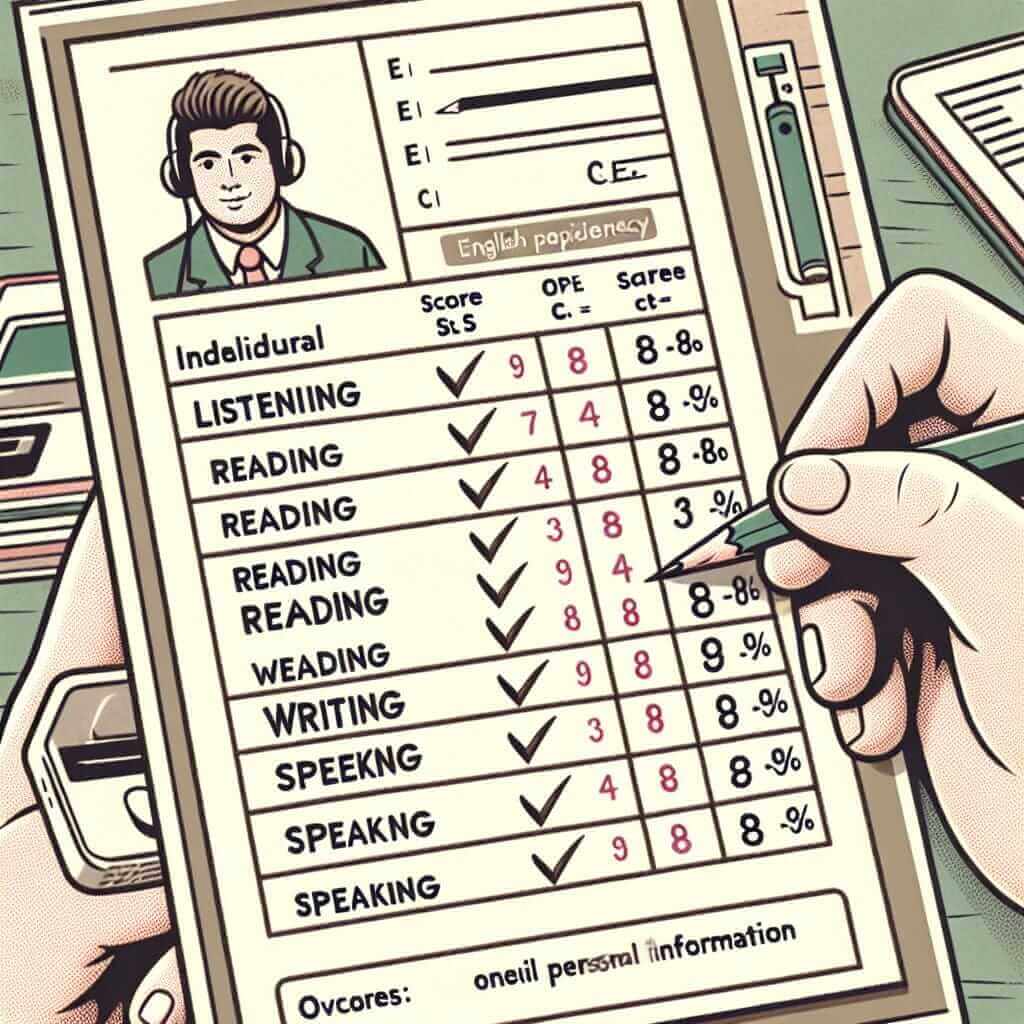Understanding the Importance of Your IELTS Score
As an experienced IELTS instructor with over two decades of experience, I’ve witnessed firsthand the importance of the International English Language Testing System (IELTS). This globally recognized test assesses your English language proficiency across four key areas: Listening, Reading, Writing, and Speaking.
Whether you’re aiming for academic pursuits, professional registration, or visa applications, understanding your IELTS score is crucial. Your overall band score, as well as your performance in each skill, are taken into consideration by institutions worldwide. But how exactly is this score calculated? Let’s break it down.
Calculating Your Average IELTS Score
Contrary to what some might think, your IELTS score isn’t simply an average of the four skills. Instead, each skill carries equal weight, and your overall band score reflects your proficiency across all areas. Here’s the process:
-
Individual Band Scores: You receive a band score for each of the four skills (Listening, Reading, Writing, and Speaking), ranging from 0 (non-user) to 9 (expert user). These scores are reported in half-band increments (e.g., 6.0, 6.5, 7.0).
-
Overall Band Score: Your overall band score is the average of your four individual band scores, rounded to the nearest half band. For instance:
- Scenario: Listening (7.0), Reading (6.5), Writing (6.0), Speaking (7.5)
- Total: 7.0 + 6.5 + 6.0 + 7.5 = 27
- Average: 27 / 4 = 6.75
- Overall Band Score (rounded): 6.5
Example from an IELTS Score Report
Let’s examine a sample IELTS score report:

| Section | Band Score |
|---|---|
| Listening | 7.0 |
| Reading | 6.5 |
| Writing | 6.0 |
| Speaking | 7.5 |
| Overall | 6.5 |
In this example, the candidate achieved an overall band score of 6.5, even though their individual scores ranged from 6.0 to 7.5.
Tips for Maximizing Your IELTS Score
-
Focus on All Skills: Don’t neglect any of the four skills. Consistent effort across all areas is key to achieving a high overall band score.
-
Practice Regularly: Familiarize yourself with the test format and practice regularly using authentic IELTS materials.
-
Seek Feedback: Have your practice tests assessed by experienced IELTS tutors to identify areas for improvement.
-
Improve Your Vocabulary: A strong vocabulary is essential for all four skills. Make a conscious effort to learn new words and use them in your speaking and writing.
-
Refine Your Grammar: Pay close attention to grammar rules and practice using a variety of grammatical structures accurately.
Conclusion
Understanding your IELTS score is essential for achieving your academic or professional goals. By focusing on all four skills, practicing diligently, and seeking feedback, you can maximize your chances of success in the IELTS exam. Remember, consistent effort and targeted practice are the keys to unlocking your desired band score.